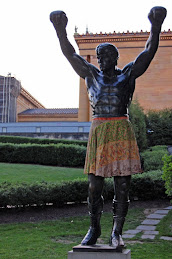
I have started to read a memoir written by a teenager who lived through the Taliban occupation of Kabul in 1996. The memoir is called My Forbidden Face: Growing Up Under the Taliban: A Young Woman's Story by Latifa. This is not her real name, but a pseudonym which she used to protect her family -- still living in Afghanistan.
The picture at the side is from Flickr and was uploaded on January 3, 2009
by cidimuzio. I want to be careful to give credit to the photographer. I selected this photograph from all the others after searching chadri because it was taken recently. I also like the picture because the woman is balancing a cage with two birds on her head and it reminds me of an episode in the memoir.
After the Taliban established itself in Kabul, they took over the radio station (renaming it Radio Sharia) and started broadcasting their edicts and rules. One of the rules includes "It is forbidden to keep dogs or birds" (41). The narrator and her family have a yellow canary and a greyhound. The greyhound is secretly taken out of the city and given to their uncle who has a country house. The canary has a different fate. The narrator lets the canary fly away -- saying that at least one member of the family will be free from the Taliban.
The narration is powerful and immediate and direct. The writer uses a journalistic style -- which suits since her ambition was to become a reporter until the arrival of the Taliban made that impossible because women were forbidden to work, to study, to walk alone. All women had to be accompanied by a male relative, called a mahram in order to leave the house. This means that even just to go shopping for groceries or to run an errand, a woman must have a male escort. How inefficient! That would mean everyone would have to stop work to get a loaf of bread or vist a friend. Nothing would get done!
Latifa also made quite real the long-term consequences of such constrictions and systematic suppression. Her mother, a trained nurse, a professional, an educated woman, could not work in a hospital finally because she reported malpractice (when a Russian nurse used the same needle to innoculate multiple children), because she argued for women's freedom. Now after the invastion of the Taliban, Latifa's mother just stays in the couch, ignores her daughters, and takes drugs to sleep soundly and deeply through the night.
The Taliban also forbade pictures, music, bright colors, high heels. Latifa and her family packed away all forbidden objects, hiding them in boxes in closets or in cupboards. Latifa's father had to surrender an old World War I weapon and saber of his father in accordance with the Taliban edict that all weapons must be surrendered. Her father wraps both in a blanket and leaves them in the mosque.
The Taliban take away symbols of freedom and autonomy in the name of religion. According to the narrator, they say their authority derives for the Koran but she insists that the edicts misrepresent and distort the Koran. She advers that her family follows the Koran and Islam faithfully.
Latifa also asserts that many members of the Taliban are not true Afghans, but come from other countries under the pretext of establishing religious purity. She makes it clear too that Afghans hate outside influences and power and control and fight and will fight for indepedence and freedom. She says, "One thing, and one thing only, unites Afghans in spite of their ethnic divisions: resistence against all foreign invaders, be they British, Pakistani, Arab -- or Soviet, of course" (24). This makes me think how futile may be American plans to try and stabilize Afghanistan by sending in more troops. The soldiers will be viewed as an invasionary force. And what will be their stance upon the Taliban?
This memoir is raw and unvarnished. But it reads as truth -- from one girl's perspective.








